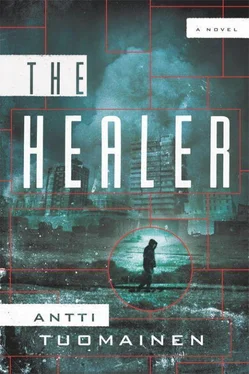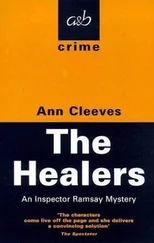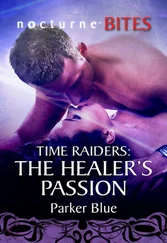“Erik was an athletic man, a good man, a strong man. At least as long as he was able. But no one can be strong when age and sickness come, when there’s not much time left. Our children and grandchildren all live in America. We keep in touch with video calls. It just makes me miss them more. I’m old enough to feel that I ought to be able to touch them, be near them, pet them and hug them and hold them, and have them hold me. Erik was the same way. We were there for each other, took care of each other.”
She paused for a moment, sank deeper into the fog, then realized she had, and turned to look at me again.
“Are you married?” she asked.
“Yes,” I said, and quickly added, “actually, that’s why I’m here today.”
She looked curious.
“My wife is missing,” I said. “This man, the man I was asking you about, might know something about it. It’s not really him that I’m looking for, but my wife.”
“Do you have any children?”
“No.”
“May I ask why?”
“Yes. We couldn’t have children.”
She seemed to ponder my answer.
“Just the two of you.”
“Yes.”
“That’s good, too.”
I felt something rough in my throat and wiped my eyes just in case.
“Yes, it is,” I said.
We sat across the table from each other, two people randomly thrown together, and I had an almost tangible feeling of how much the two of us had in common. How much all of us have in common. I didn’t want to break the silence that also united us. It felt strangely calming, almost final. I didn’t want to pry, to interrogate her. Maybe she would eventually circle back to what I had come to ask her about.
I tasted the strong coffee and let it gently sting my tongue before I swallowed it. I looked at the pictures on the wall—seascapes sparkling with sunshine, country houses painted red and yellow, glowing golden fields and dark green forests. Fantasy places.
“Erik’s pain seemed to increase as quickly as his medication,” she said. I had just been wandering in the wind-rippled wheat, about to open the gray-timbered house dimly visible at one side of a field. “The cancer was progressing, of course. And that’s when the young man offered to help us.”
“How did he offer to help?”
She thought for a moment.
“Now that you ask, it was really quite surprising. How did he know to come here when the situation was at its worst? He was just at the door one day.”
“When did this happen?” I asked, putting my empty cup down in its saucer.
“Erik died a year ago,” she said. “He came about six months before that. That’s why I don’t understand—you said that the young man died five years ago, but a man of the same name, who looked the same, who I thought was a doctor, came here a year and a half ago and said he wanted to help us.”
She was clearly flustered.
“There’s nothing wrong with your memory,” I said. “It’s my mistake. I must have had incorrect information, that’s all.”
“That must be it,” she said, looking for a moment even older than she was. “It frightens me. If I lose my memory—lose my mind—what will I have left?”
“You have nothing to worry about,” I assured her. “Your memory is excellent. Tell me more about this man, the one who showed up a year and a half ago. Did he ever mention why he had come?”
“That’s another thing,” she said. “It wasn’t for money. He never took any payment for his time and didn’t even want much money for the medicine. Erik was so sick by then that we needed all the medication we could get for him. Things we hadn’t been able to get.”
“And this man helped you?”
“Yes. I was grateful to him. He also helped Erik on his final journey.”
“Here at home?”
“What better place to die?”
I saw the place at Jätkäsaari again. Human forms under a blanket. Bloodstains on the wall above the bed.
“No better place, I guess,” I said. “Then what happened?”
She looked at me.
“Then Erik was cremated and I was left alone after forty-six years,” she said.
“I’m sorry. And after that?”
She looked impatient now.
“I would have liked to die, but I didn’t die,” she said. “Sometimes it’s that simple.”
“Forgive me, Mrs. Bonsdorff,” I said quietly. “I didn’t mean that. Perhaps I didn’t say it very well. I mean, what about this doctor, Tarkiainen? Did you ever hear from him again?”
“He disappeared the same way he had come. He arrived uninvited and left without saying good-bye. I’ve never heard from him again.”
“Do you know whether he lived in this building at the time he was helping Erik?”
She pondered the question.
“I hadn’t thought about it. I suppose it’s possible. It’s certainly not impossible.”
“Did you ever run into him on the stairs or in the courtyard?”
She shook her head, slowly but with certainty.
“I don’t think so. Of course…”
“Yes?”
“Now that I think about it, I may have wondered at the time how he could get here so quickly after we called him, and in his shirtsleeves, with just his bag in his hand. But I didn’t think any more about it at the time.”
I didn’t know in which direction my questions should go. I wiped my lips with the small napkin she’d given me, although they were already painfully dry.
“Are you and your wife happy?” she asked abruptly.
I looked deep into her blue-green eyes, so much like Johanna’s that for a fraction of a second I almost fell into them.
“I’ve never loved anyone or anything as much as I love my wife,” I heard myself say. Mrs. Bonsdorff’s gaze never faltered. Deep creases appeared in her cheeks, at the edges of her eyes. A warm smile rose to her face, and I could see that they were her eyes and not Johanna’s.
* * *
I WAS IN THE foyer putting on my coat and looking at myself in the large, gilt-framed mirror when she said, “When you find your wife…”
I turned and looked at her. She was nearly swallowed by the large entrance to the living room and the dense fog outside the window.
“Don’t lose her again.”
I tied my scarf around my neck.
“I’ll do my best, Mrs. Bonsdorff.”
I had already turned away from her and put my right hand on the door handle and my left on the lock when I heard her say: “It’s not easy, but it’s worth it.”
I looked at the directory again for the building manager’s apartment number. It was on the first floor, someone named Jakolev. There was no answer. Maybe they weren’t home, or maybe they were just keeping quiet on the other side of the door. I could hear myself breathing, and water in the pipes somewhere, and smell the heavy, rotten smell of fried eggs. I waited a moment, then found the phone number on the directory and tried calling. Jakolev didn’t answer. I was getting used to no one answering my calls, I guess. I slipped the phone back into my pocket and left.
When I got outside I filled my lungs with air, opened the door of the taxi, and got in, waking Hamid.
“Where to now?” he asked, looking more alert in a second than I ever did.
I thought about where to go, what place made sense. And about what I knew for certain now: Tarkiainen was alive.
Johanna had been on the trail of the Healer.
Tarkiainen had some connection with the Healer.
Tarkiainen and Johanna had met.
That’s as far as I’d got when Hamid turned and looked at me with his dark, nearly black eyes.
“Where do you want to go?” he asked.
At that moment my phone beeped, telling me I had a message. I took it out, read the message, and immediately knew where to go.
Читать дальше












